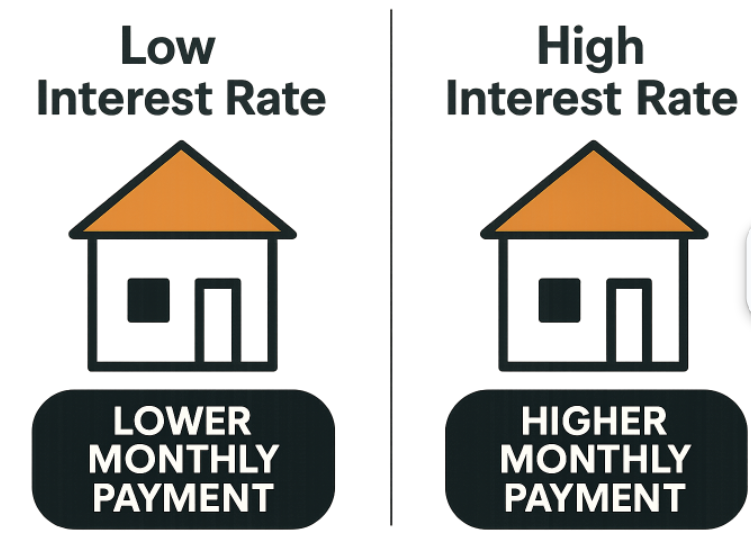These days, it is crucial that APIs are accurate and reliable. In contemporary systems, APIs are crucial to the smooth communication between different software components. Since more and more companies rely on APIs to deliver dynamic and responsive user experiences, they must be fully tested. Inadequate API validation can lead to inconsistent data, security vulnerabilities, and worsened application performance, all of which can eventually affect user happiness and business operations.
Using JSONPath, a query language for JSON, is one of the main methods for validating APIs. It is incredibly effective at traversing and extracting data from JSON’s intricate architecture. JSONPath is a crucial tool for confirming API answers since it makes it easier to locate particular elements inside JSON data. With an emphasis on using a potent JSONPath tester to improve accuracy, dependability, and efficiency in API testing procedures, this blog examines sophisticated JSONPath testing strategies to create strong API validation frameworks.
What is JSONPath?
JSONPath is a query language developed for JSON data structures. This allows developers and testers to navigate, filter, and extract data from JSON documents efficiently. It is similar to XPath for XML, which makes it possible to access specific elements within nested JSON objects and arrays with pinpoint accuracy.
Key Features of an Effective JSONPath Tester
An effective JSONPath tester goes beyond being just a simple checker of queries and plays a major role in optimizing API testing workflows. The features that define a robust JSONPath tester for more complex validation requirements are as follows:
Real-Time Evaluation: Real-time feedback for JSONPath expressions allows for easy validation and amendments during development time.
Syntax Highlighting: JSONPath queries read better, and syntax errors get reduced with clearly differentiated elements in the JSONPath query.
Error Detection and Debugging: Pinpoints issues in the JSONPath query, provides detailed error messages, and gives suggestions for quick fixes.
Support for Complex Queries: Handles nested JSON structures, recursive searches, and advanced filtering expressions, which makes it appropriate for complex API responses.
Customizable Query Parameters: The tester can define and change parameters dynamically. It supports various testing scenarios.
Integration Capabilities: It is highly integrable with API testing tools, CI/CD pipelines, and development environments to ease workflows.
Performance Optimization: The application processes large JSON datasets efficiently without losing speed, hence it is scalable for enterprise applications.
Building a Robust API Validation Framework with JSONPath
Because it offers a potent method for extracting and validating data from intricate JSON structures, JSONPath is essential to this process. In this section, we will examine how to effectively use JSONPath to create robust, scalable frameworks for API validation that can accommodate continuous delivery practices and adjust to changing requirements.
Define Clear Validation Rules
Using JSONPath, define precise rules for extracting and validating data. This helps to ensure that the tests are consistent and accurate. Start by defining key data points in API responses that need validation, such as status codes, specific field values, and nested JSON structures. Define standardized JSONPath expressions for these data points to maintain uniformity across different APIs and projects.
Additionally, create clear documentation outlining validation criteria, including data formats, value ranges, and conditional logic. Incorporate validation rules that handle edge cases and unexpected data variations to ensure comprehensive coverage.
Automate JSONPath Testing
JSONPath testers can be integrated into CI/CD pipelines to automate validation processes. This will enhance efficiency and minimize manual errors. Automated JSONPath testing ensures that API validations are consistently executed with every code change, reducing the likelihood of regressions. With the embedding of JSONPath testers into the deployment workflow, teams can detect issues early, streamline debugging, and accelerate release cycles.
For effective automation, use API testing tools that support the integration of JSONPath capabilities, such as Postman, JMeter, or custom scripts with libraries like RestAssured or Python using JSONPath. Then, set up automated tests that will run through each point of the pipeline, including on pull requests, nightly builds, and pre-deployment checks, in addition to detailed reports and dashboards to feed results quickly back to developers for eventual fixes.
Managing Dynamic Data
Using JSONPath with wildcards and filters, manage dynamic and ever-changing JSON responses. APIs usually return responses with changing structures, especially in microservices or real-time applications. JSONPath is flexible and enables testers to change with such changes without constantly rewriting queries. Implement parameterized tests to validate dynamic data across different API environments and configurations, therefore increasing the robustness of your validation framework.
Comprehensive Error Reporting
Implement detailed mechanisms for error reporting that can explain failed JSONPath evaluations, supporting faster debugging. Robust error reporting should, at the bare minimum, provide specific details that include the exact failing JSONPath expression, the location of the failure within the structure of the JSON, and the failure type—either syntax, mismatched data, or missing fields. Include relevant request and response metadata to contextualize issues to be pinpointed more effectively.
Scalability Considerations
Design the validation framework to process large datasets and high volumes of API requests without degradation in performance. It should be optimized for JSONPath efficiency with minimal deep recursive searches and complex filters that can slow down processing. Tools like parallel processing and distributed testing can be used to strategize on managing large-scale validations.
Best Practices for Advanced JSONPath Testing
Adopting best practices is crucial when using JSONPath for API validation to guarantee accuracy, efficiency, and maintainability. These procedures aid in improving the overall robustness of your API testing framework, streamlining workflows, and lowering errors. Teams can improve cooperation, preserve uniformity, and handle intricate JSON data structures in a variety of testing contexts by putting standard operating procedures into place.
Consistent Query Structure
Ensure that JSONPath expressions are uniform throughout the framework. This makes it easier to read, reduces the learning curve for new team members, and minimizes errors due to inconsistent query patterns. Establish coding standards for JSONPath queries and document best practices within the team.
Version Control: Follow changes in JSONPath queries so that updates are handled efficiently. Use version control systems such as Git to track changes, thereby knowing when and why changes occurred. Implement code reviews for JSONPath queries so that quality is maintained and regression issues are prevented.
Performance Monitoring: Monitor JSONPath evaluations, especially on large datasets. Use profiling tools to identify which queries are slow and have a tendency to make them faster by simplifying expressions or restructuring JSON data, if possible. Also, monitor the response times for automated tests to prevent performance breaches early.
Security Measures: Use proper mechanisms for handling JSON data and queries. Avoid showing any sensitive information within error logs or reports and limit access controls within testing environments. Sanitize inputs to avoid injection attacks. The security best practice for testing the API has been followed.
Test Comprehensive: Provide tests that cover all different kinds of scenarios like edge cases, error conditions, and different data formats. Ensure that the JSONPath queries are broad enough for all types of expected and unexpected API responses.
Parameterized Testing: Parameterized tests for flexibility and reusability. This can mean that the same JSONPath queries can be exercised against different input data, increasing test coverage without duplicating code.
Regular Maintenance: Review and update JSONPath queries periodically based on changes in APIs. Refactor outdated or inefficient queries to maintain performance and ensure the accuracy of validations.
Enhancing API Testing with LambdaTest
The cloud-based cross-browser testing tool LambdaTest was developed to facilitate and ease the testing of websites on a variety of devices. Its extensive testing features allow developers to make sure that their websites are optimized and provide a consistent user experience for every user, regardless of the device or browser they are using. With LambdaTest, an AI-native platform for test orchestration and execution, developers and QA specialists can run automated tests on over 10000+ environments with real-world scenarios.
Using a cloud-based testing platform such as LambdaTest can significantly improve your API validation framework. By allowing QA teams to conduct both automated and manual cross-browser testing at scale, LambdaTest guarantees that your front-end apps and APIs function flawlessly in a variety of settings.
Enhancing Software Quality and Speed with LambdaTest and JSONPath Testing
Its strong infrastructure facilitates parallel testing, which speeds up release cycles and drastically cuts down on test execution time. Because of LambdaTest’s real-time debugging features and ability to integrate with CI/CD tools, QA teams can find and fix problems quickly. Businesses can attain thorough test coverage, enhance software quality, and reliably provide outstanding user experiences by utilizing LambdaTest in conjunction with sophisticated JSONPath testing.
In addition to this, geolocation testing in LambdaTest will allow you to validate APIs and web applications across different global regions, ensuring that the data will comply with local requirements. It has a powerful analytics dashboard that gives insights about test performance on both APIs and UI elements that need improvement.
LambdaTest also supports automation frameworks such as Selenium, Cypress, and Playwright. This makes it easy to integrate into existing test suites. Scalability is assured; whether testing small applications or complex enterprise systems, the testing process will remain efficient, thorough, and adaptable to changing project demands.
This allows QA teams to create a strong, efficient, and future-proof API validation framework by combining LambdaTest capabilities with advanced JSONPath testing that can drive continuous improvement and superior product quality.
Conclusion:
Advanced JSONPath testing is critical when building robust frameworks for API validations. As API development continues toward powering complex and large ecosystems, the need for efficient validation becomes increasingly important due to data integrity and business logic. Using the efficient JSONPath tester helps streamline the work of validation through accuracy and enables scalable API environments.
Advanced JSONPath techniques, such as dynamic data handling, comprehensive error reporting, and automation within CI/CD pipelines, can lead to a very significant improvement in the efficiency of API testing within organizations. Besides early identification of issues in the development lifecycle, these strategies avoid the risk of production defects to ensure faster delivery of high-quality software.
In addition, best practices such as regular query structures, performance monitoring, and secure data management contribute to an environment of constant improvement for better APIs. Adoption of these approaches helps teams develop robust APIs that meet the increased needs of current applications and sustain customer confidence while achieving business goals in today’s digital competitive arena.
Latest Blogs:
| MstsTorenet |
| Skinpres T |
| 210‑200‑8992 |
| Is Vowiszojid54 for Sensitive Eyes? |
| Mutstreams |
| Baby Face Generator |
| Soccer Uniforms for Teams Package |




